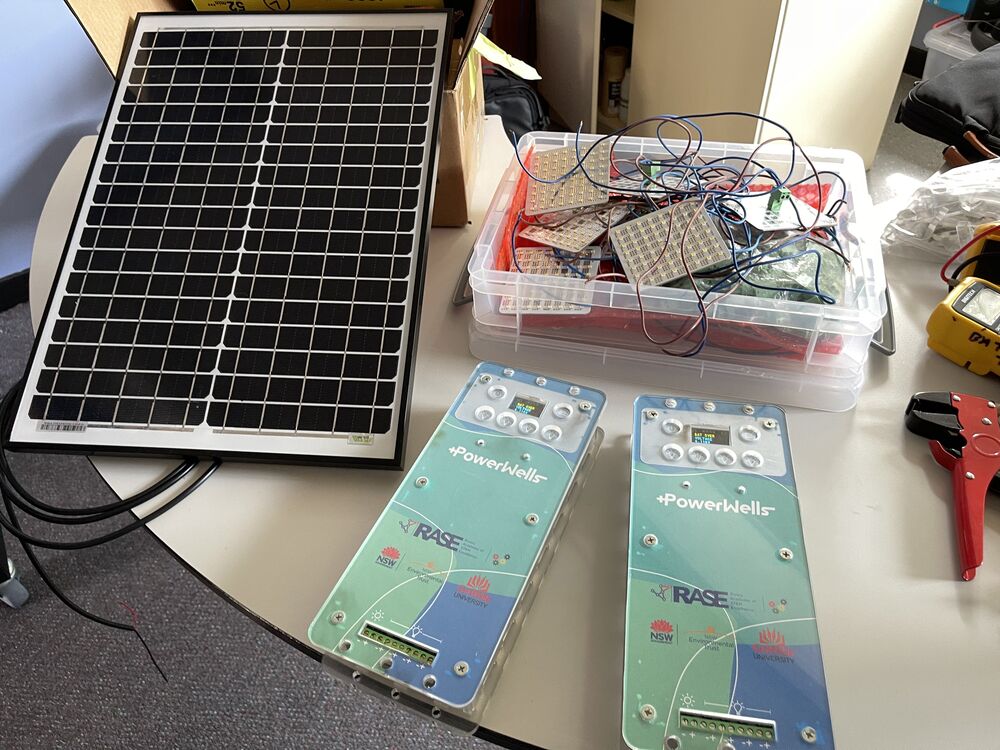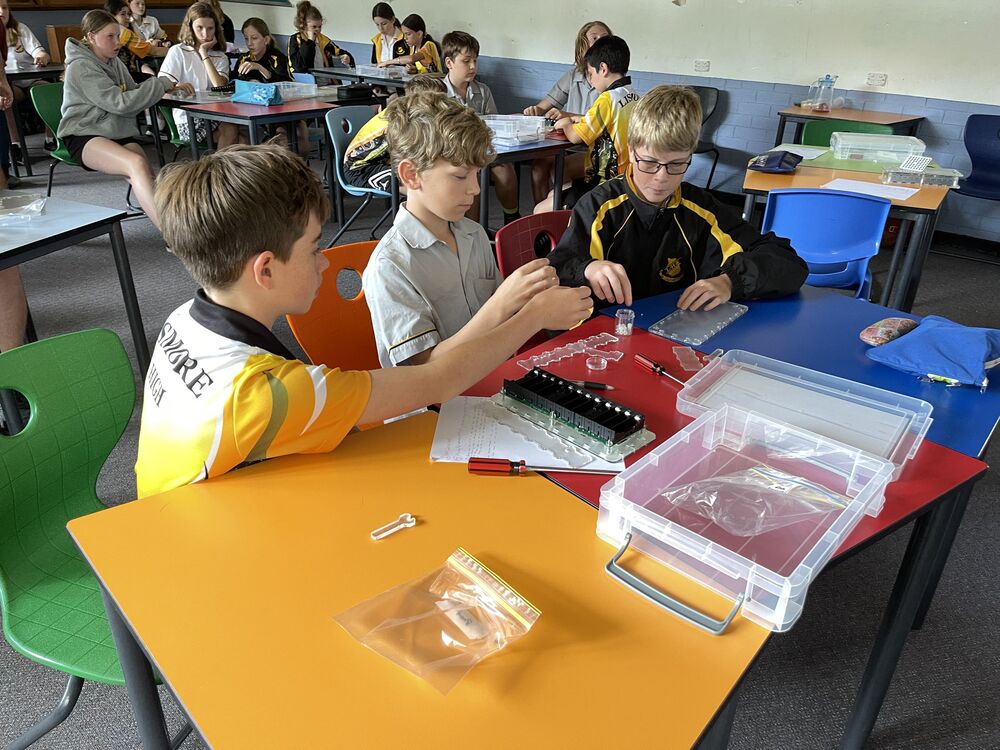Lismore High School students giving power to those that need it
Dylan Butcher
31 March 2023, 7:06 AM

School students at Lismore High School today took part in a program that recycles electronic waste, and turns it into home solar systems for people that don't have access to electricity.
Bradley Clair is the co-founder of PowerWells, the organisation that created the product the students were building.
It uses laser cut and discarded television screens and repurposed lithium-ion laptop batteries, to create a system that powers lights, charge phones and provide basic power to appliances.

“The systems that they're building today, we're actually going to send them over to Indonesia to our partners, Sumba Sustainable Solutions, and they're going to be installing the systems into households that don't have access to power,” Mr Clair said.
“Electronic waste is actually the fastest growing waste stream, so I think it's really important to show the benefits of recycling, but also that you can actually repurpose things to provide a longer life, which means that less things are going into landfill.”
It not only provides power to those who need it, but it is also safer than the current alternatives used to provide lighting - kerosene lanterns. The World Health Organisation estimates that breathing in kerosene fumes is the equivalent to smoking 40 cigarettes per day.
“In Indonesia, if you don't have power, you usually rely on kerosene lanterns for light at night. They are really bad for the environment and also really bad for your health as well,” Mr Clair said.
“You can imagine a whole family sitting around a kerosene lantern, and then inhaling all the stuff from the kerosene. There's also problems with kerosene lanterns falling over, which can cause fires, which is bad considering all the houses are made out of bamboo.”

Karen Ramsay is the STEM Project Officer and said the program was exceptionally beneficial for students, and has been well received.
“They're getting an understanding that they can be part of a solution, which is really good, because we often talk about the doom and gloom of the world, but this is something that they can actually do, which is really great,” Mrs Ramsay said.
“I think the fact they know that whatever they're making is going to another country, to another family, or community just makes it relevant and authentic.”
“We’ve run it across the whole Rivers Secondary College, at Kadina, Richmond River and now here at Lismore High, which is really good.”
“STEM is about combining science, technology, engineering, and maths to solve a problem. So, what these guys have done - they identified a problem with waste, they also identified that people were without power, and they've created a solution.”
Torren was one of the students taking part, he said it was a great program: “This is a great program, I love it, and I’m surprised I haven’t heard of it before.”
If you would like more information about the program, or are a school interested in running it, visit https://www.powerwells.org/.

